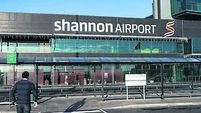Sri Lanka lifts ban on Tamil Tiger rebels
The Sri Lankan government has lifted a ban on the Tamil Tiger rebels, paving the way for peace talks to end the island nation’s 19-year civil war.
Given the midnight hour (7pm Irish time yesterday) of the lifting of the four-year-old ban on one of world’s most feared militant groups, there was no immediate reaction in the capital early today.














